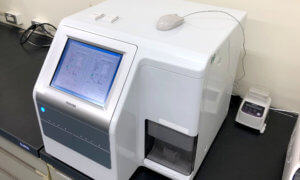Great progress towards developing a blood test able to detect Alzheimer’s was revealed by researchers from the Washington University School of Medicine in St Louis, Missouri. According to the researchers, the test can detect Alzheimer’s up to 20 years before symptoms appear, which can make a big difference in improving the life quality of the patients.
Researchers are hoping that the test will speed up the screening process for potential clinical trial participants and help future drug trials, according to the New York Times report. On the long term, the scientists hope to find a treatment for Alzheimer’s.
“Right now, we screen people for clinical trials with brain scans, which is time-consuming and expensive, and enrolling participants takes years,” said Randall Bateman, professor of neurology at Washington University and senior author of the paper published in Neurology on Thursday, in a statement. “But with a blood test, we could potentially screen thousands of people a month,” he added.
How it works
Until now, the test could only be carried out through a PET scan, which is very expensive, and therefore not available to everyone.
Now, the blood test developed by researches can measure levels of amyloid beta, a protein that is found in the brains of Alzheimer’s patients.
However, there’s still some work to put in until it becomes a fully-fledged diagnosys test, as researchers said the success rate of the new test was 88 percent. The test involved 158 adults over 50 years old.
Even so, we can’t argue the significant impact the test could have for medical health professionals when screening for Alzheimer’s, because like with every medical condition, the sooner it is detected, the better.
Follow TechTheLead on Google News to get the news first.

























